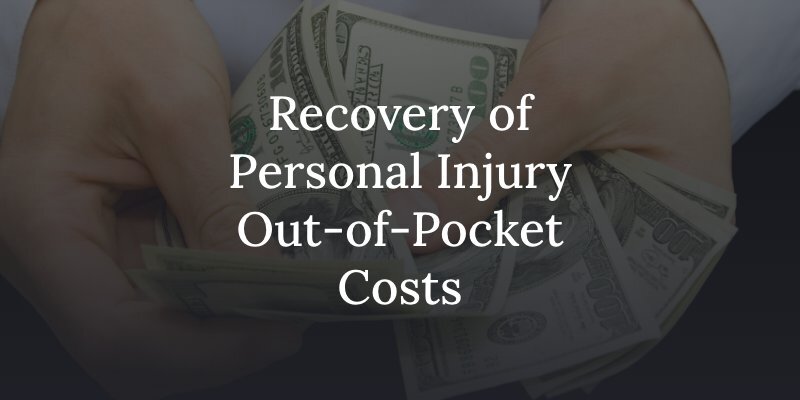Sudden injuries are traumatic and painful, with added distress when the injury victim knows the injury was preventable if only someone else had taken reasonable precautions. Unfortunately, serious injuries are also expensive, with medical expenses piling up at the same time the injury victim may be unable to work at their previous capacity, or at all. In a Kansas City personal injury case, we commonly consider damages like medical expenses, lost earnings, and compensation for pain and suffering, but many injury victims are also astonished to find out how quickly out-of-pocket expenses add up. Are these additional expenses covered in a compensation claim?

What Types of Out-of-Pocket Expenses Are Associated With Personal Injuries?
No one plans for a sudden serious injury. Although medical insurance covers some expenses, and a successful personal injury claim reimburses those expenses, insurance often has gaps, such as co-pays, deductibles, and uncovered expenses. Depending on the type and severity of the injury, additional out-of-pocket expenses add up quickly. Examples of these expenses include the following:
- Medical equipment
- Prescription and over-the-counter drug costs
- Medical equipment and adaptive equipment
- Home adaptive equipment
- Travel expenses to see specialists and physical therapists
- Home health care costs
- Costs for additional household help and yard maintenance while you’re physically unable to manage
- Additional childcare costs
- Property damage to items such as a phone, purse, clothing, or jewelry
When another party’s reckless, careless, or negligent actions cause you to suffer an injury, the additional out-of-pocket expenses directly related to the injury can be included in your compensation claim for damages.
Who Pays for Damages Like Out-of-Pocket Expenses In Personal Injury Claims?
Most personal injury claims are made against the liable party’s insurance policy. For example, auto insurance after a car accident, commercial liability insurance after a slip-and-fall accident in a store, or malpractice insurance after a medical malpractice injury. These claims typically end in a settlement agreement to cover damages, including out-of-pocket expenses. About five percent of personal injury claims require court litigation when an insurance company wrongfully denies or undervalues the claim. Recovering compensation for damages like medical expenses, lost earnings, and out-of-pocket expenses requires substantial proof of the at-fault party’s liability and evidence of economic damages.
Liability for Damages In Personal Injury Cases
Personal injury law centers around the premise that all individuals, businesses, and other entities must take reasonable measures to avoid causing harm to others. A successful personal injury claim to recover full compensation for damages, including out-of-pocket expenses, requires evidence that shows the case meets the following standards of liability:
- The at-fault party owed a duty of care to the victim, such as a store owner’s duty to prevent fall hazards
- They breached this duty of care through negligence
- The breach of duty caused the injury
- The injury victim suffered economic damages from the injury
Out-of-pocket expenses fall under the category of an injury victim’s economic damages, while pain and suffering are examples of non-economic damages.
Proving Economic Damages Like Out-of-Pocket Costs
Maintaining meticulous records of your injury-related expenses is crucial to recover full and fair compensation for damages. This includes copies of your medical bills, invoices, prescription receipts, and all receipts for travel expenses and other out-of-pocket costs, such as your payments for household services you can no longer perform, either temporarily or permanently. The insurance company and courts require evidence of all expenses, including lost wages. You’ll also need medical expert testimony showing why these out-of-pocket costs are necessary for your injury treatment and management. A personal injury lawyer carefully calculates your economic damages to maximize your financial recovery.

